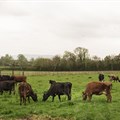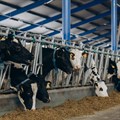The Department of Agriculture has reported ongoing foot and mouth disease (FMD) outbreaks in KwaZulu-Natal and the Eastern Cape, with containment measures and biosecurity efforts intensifying to curb the spread.
KZN outbreaks and disease management
According to the World Organisation for Animal Health (WOAH), KwaZulu-Natal has recorded 165 FMD outbreaks, with 147 active cases. In response, officials expanded the Disease Management Area (DMA) on 17 March 2025, urging farmers to maintain strict biosecurity and comply with movement protocols. Authorities note that adherence to these measures could significantly reduce viral load within 28 days.
A new outbreak has been confirmed in Bergville, outside the newly declared DMA, with traceback investigations suggesting the infection originated within the extended DMA before its official designation.
Additionally, two suspected cases outside the DMA are under investigation, and all affected locations have been placed under quarantine. Surveillance and vaccination efforts are being intensified across the province, with a focus on a 10 km radius around infected farms.
Authorities recently met with key stakeholders to finalise the Movement Control Protocol for the DMA, which is now accessible through the Department of Agriculture’s official platforms.
EC situation and targeted relief measures
The Eastern Cape has reported 40 FMD outbreaks, with 39 cases still active. However, one new case detected through routine surveillance showed no signs of active viral circulation, as blood test results indicated past infection. Authorities hope that continued testing will support the eventual lifting of DMA restrictions.
As surveillance efforts progress, the Department has introduced relief measures for farmers whose herds have consistently tested negative and have not been vaccinated against FMD. These farms may now:
• Process milk for local consumption after a single pasteurisation instead of the previously required double pasteurisation or UHT treatment.
• Be exempt from 28-day interval testing to qualify for direct slaughter.
Authorities say these measures are intended to ease the financial burden on compliant farmers. Eligible farm owners are encouraged to contact their local State Veterinarian to apply for exemptions.
Nationwide biosecurity and movement control
National FMD control measures, first introduced in October 2022, remain in effect:
• Movement of cloven-hoofed livestock across South Africa requires a health declaration from the owner.
• Newly acquired cattle, sheep, and goats must be quarantined for at least 28 days before being introduced to existing herds.
• Farmers are urged to limit animal movements and only buy livestock from reputable sources with verified health declarations.
Under Section 11 of the Animal Diseases Act, animal owners and farm managers are legally obligated to prevent the spread of disease by implementing biosecurity measures such as restricting farm access, preventing nose-to-nose contact between animals, and securing farm boundaries.
Wandile Sihlobo 14 Nov 2023
Reporting suspicious symptoms
FMD is a controlled disease under South African law. Farmers are required to report any symptoms of the disease—such as excessive salivation, blisters in the mouth, limping, or hoof lesions—to their local State Veterinarian immediately.
Affected animals must not be moved under any circumstances.








































